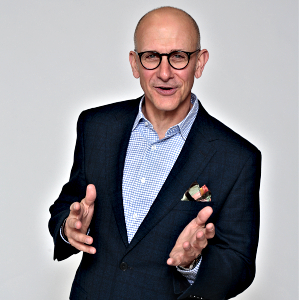
(By Jeff McHugh) So said CBS 60 Minutes creator, the late Don Hewitt. Broadcasters sometimes overlook the importance of audio. In television, what audiences hear is more important than what they see. Radio and podcast presenters have only sound to work with, but many leave their potential unexplored.
Here are some pro tips on the effective use of sound from successful shows on television, radio, and podcasting.
Good writing matters. When writing on-air, read it out loud in the editing process to get a sense of flow and rhythm. For television, Don Hewitt said, “The picture brings you there, but the writing keeps you there.”
Vocal dynamics. Journalists are trained to enunciate and read slowly, but in the “fake news” era, authenticity matters more than ever. Audiences do not trust perfection. Blend your natural speaking style with professionalism and clarity. Vary speed and tone to avoid being monotone. Project 5-10% louder than normal and audiences will perceive you as more confident. Pauses are powerful. Use more of them.
Sound effects and voices. Voice conveys emotion. The audio of screaming from a shooting incident is more dramatic than any video.
Sound effects can elevate a simple joke into something hilarious like a horse reacting each time a certain name is spoken in the film Young Frankenstein.
Use music intentionally. Conventional deejays often play generic music beds as they speak, which distracts the audience. Instead, use music beds that work in harmony with the content. When discussing a TV show, play the theme song underneath the conversation. Telling a love story? Highlight it with a romantic tune.
Only use instrumental music beds. Talking over vocals takes the listener’s attention away from the conversation.
Keep the background noise. An off-camera reporter telling a story over a video clip with audio in the background, even just traffic noise or falling rain, is more engaging than voice and pictures alone.
Reenactments and characters. Some of our favorite radio shows augment topical stories by improvising comic imitations.
Good headphone sound. What you hear helps determine how you speak. While the audience hears Howard Stern’s natural voice, he hears a different, processed audio feed in his headphones. Howard says it encourages him to use the full range of his voice.
Sound-friendly rooms. Instead of expensive sound-deadening foam, many podcasters hang inexpensive moving blankets and cover the floor with rugs. Eliminate squeaky chairs, switch off HVAC fans, and banish mobile devices.
Jeff McHugh is known for developing remarkable talent for both morning and afternoon drive. He brings an uncommon mix of positivity, creativity, and strategy to the shows that he coaches. He is a member of the team at the Randy Lane Company. Reach Jeff at [email protected] and read his Radio Ink archives here.






